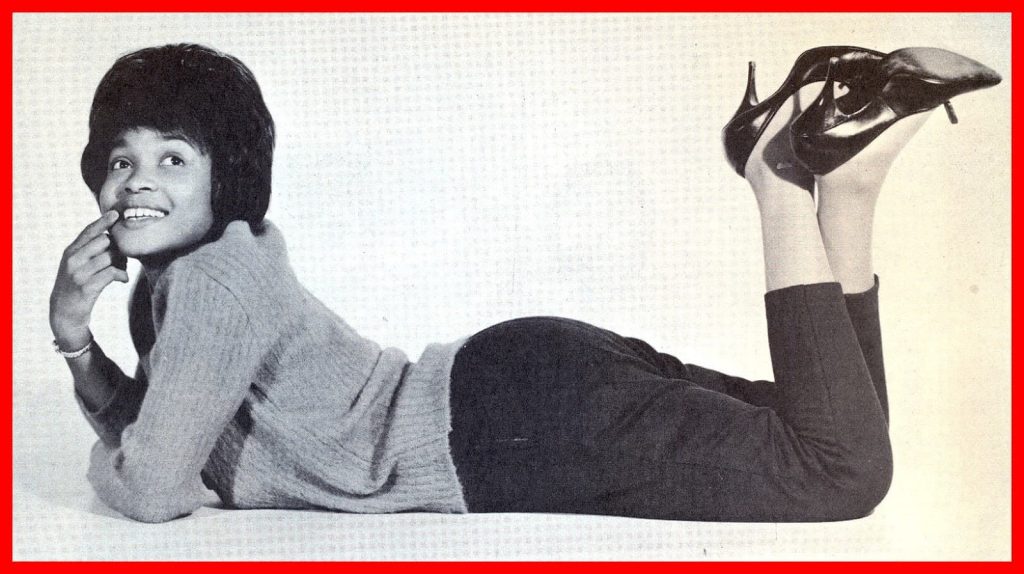
“Keep Your Hands Off My Baby”: Little Eva’s Spirited Defense of Love and a Classic Girl-Group Gem
In 1962, Little Eva followed up her breakout success with “Keep Your Hands Off My Baby,” a catchy and assertive pop tune that showcased both her charm and vocal prowess. Coming off the explosive success of “The Loco-Motion,” this track proved that Little Eva was no one-hit wonder, offering listeners a spirited defense of romantic devotion wrapped in a bright, infectious melody. While it didn’t reach the same chart heights as her debut, “Keep Your Hands Off My Baby” still found its place in the hearts of pop fans, peaking at No. 12 on the Billboard Hot 100, and remains an enduring entry in the girl-group era of the early 1960s.
At its core, “Keep Your Hands Off My Baby” is a playful yet determined declaration, warning other girls to stay away from her man. The lyrics, penned by the legendary songwriting duo Gerry Goffin and Carole King, capture the kind of romantic drama that many teenagers could relate to. The song’s narrative unfolds from the perspective of a girl fiercely defending her relationship, making it an anthem of loyalty and youthful determination. Lines like “I ain’t a-gonna tell you twice / Keep away from my baby” are delivered with a combination of sweetness and fire, creating a sense of endearing toughness that listeners couldn’t resist.
Musically, the track is rooted in the pop-R&B hybrid sound that defined much of the early 1960s. Its brisk tempo, handclaps, and lush background harmonies evoke the essence of the girl-group sound, a movement that was dominating the charts at the time with groups like The Shirelles, The Marvelettes, and The Ronettes. Little Eva’s delivery—equal parts playful and insistent—adds a sense of urgency to the song, perfectly complementing the lively rhythm and jangly piano chords that propel the arrangement forward. The production is polished but still retains a raw, youthful energy, a hallmark of Goffin and King’s work during this era.
What makes Little Eva’s performance on this track so memorable is the way she embodies the character in the lyrics. There’s a sense of vulnerability underneath the bravado—she’s clearly worried about losing her boyfriend but hides that fear behind a front of confidence. This emotional nuance adds depth to what could have been just a simple pop tune, making “Keep Your Hands Off My Baby” resonate with listeners on multiple levels. Whether you were the one feeling possessive of your love or the one envying someone else’s relationship, the song tapped into universal emotions.
Though it didn’t reach the same level of fame as “The Loco-Motion,” the song enjoyed significant airplay and became a staple of early rock ‘n’ roll radio. It also helped solidify Little Eva’s image as a talented, versatile artist capable of more than just dance hits. While her career would encounter ups and downs, “Keep Your Hands Off My Baby” demonstrated that she had staying power, proving that her voice was just as at home in emotional, story-driven songs as it was in upbeat dance numbers.
Interestingly, the song has had a lasting cultural impact over the years, covered by artists like The Beatles during their early live performances, further highlighting its appeal beyond its original release. Carole King’s involvement in crafting the song also adds to its significance, as it represents an early example of the many timeless hits King would go on to write throughout her illustrious career.
In retrospect, “Keep Your Hands Off My Baby” serves as a shining example of the playful yet emotionally charged songwriting that defined the early 1960s. It captures a moment when youthful passion and jealousy felt all-consuming, and it translates those feelings into an irresistible pop melody that still holds up today. Little Eva’s performance is both spirited and sincere, cementing her place in the history of early pop and proving she was more than just a one-hit wonder.
For fans of the girl-group sound and early pop music, “Keep Your Hands Off My Baby” remains a timeless reminder of young love, loyalty, and the complexities of teenage emotions. It’s a track that, despite its lighthearted surface, carries the kind of emotional weight that makes it just as relatable now as it was in 1962.